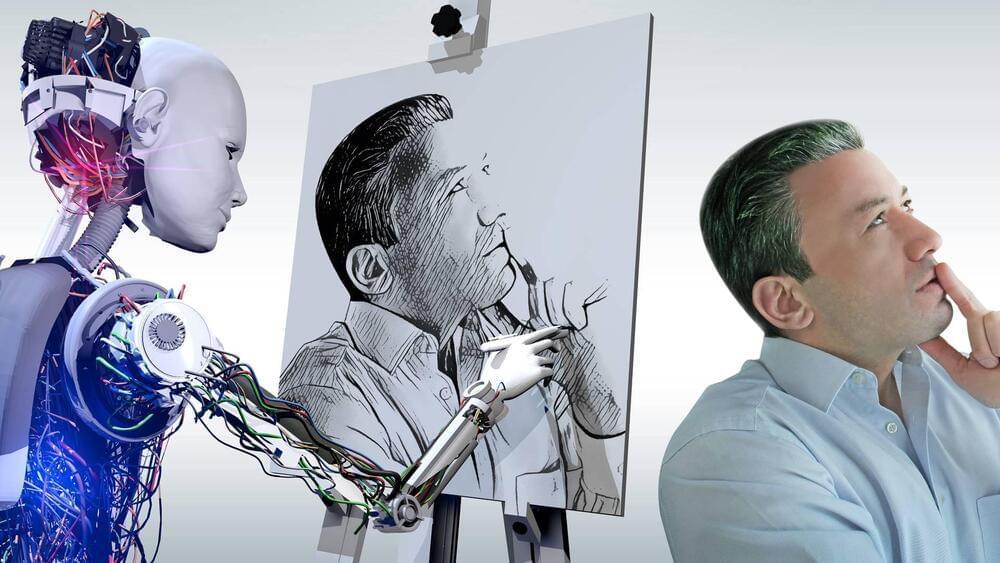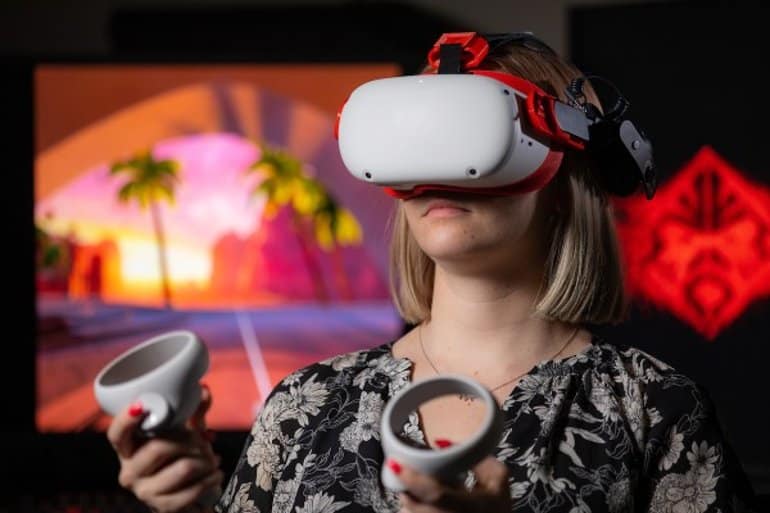Track 5 from the ELO album Time.
Category: entertainment – Page 48
The Creation of the Humanoids (1962) VOSTFR — Film complet
Covers a fictional anticipation of artificial intelligence and mind uploading.
Film de Wesley Barryet.
Genre : Science-Fiction.
Durée : 1h24
Avec Dudley Manlove, George Milan, Don Doolittle.
A la suite d’une guerre nucléaire catastrophique, l’humanité a créé une race d’androïdes à la peau bleue pour l’aider à la reconstruction de la civilisation. Bientôt, les robots deviennent plus intelligents et plus humains. Afin d’enrayer leur évolution et de préserver leurs propres règles, un groupe de fanatique appelé “L’ordre de la chair et le sang” est créé. Les robots sont-ils vraiment à considérer comme l’ennemi de l’Homme ou bien sont-ils son dernier espoir?
INCENDIARY IDEAS 004 The End of All Things
The original artwork in this episode is “Imago Humanitas” by Jason Reza Jorjani: https://jasonrezajorjani.com/work#/imago-humanitas/
Prometheism Website: https://prometheism.com.
Jason Reza Jorjani at Patreon: https://www.patreon.com/JasonRezaJorjani.
Jason Reza Jorjani at PayPal: https://www.paypal.com/paypalme/JasonRezaJorjani.
JRJ Books: https://www.amazon.com/s?i=stripbooks&rh=p_27%3AJason+Reza+J…atfound-20

China: AI-powered humanoid robot named CEO of company
Tang Yu will help in enabling a more effective risk management system.
A Chinese metaverse company has appointed a robot as its CEO! Yes, you read it right. It may sound straight out of a Sci-Fi movie but it is true. Chinese company, NetDragon Websoft develops and operates multiplayer online games and also makes mobile applications.
Recently, the Chinese gaming company announced the appointment of its new CEO ‘Ms. Tang Yu’. And…the CEO is an AI-powered virtual humanoid robot. Tang Yu has been appointed as the CEO of the company’s principal subsidiary, Fujian NetDragon Websoft. It has become the world’s first robot to hold an executive position.

Researchers Demonstrate Brainwave Synchronization Without Physical Presence
Researchers demonstrated that the brains of people playing an online game together were synchronized without physical presence.
Online gaming and other types of online social interaction have become increasingly popular during the COVID pandemic. This trend is likely to continue due to increased remote working and investments in social technology.
Previous research has shown that people’s brains activate in a similar and simultaneous way during social interaction. Such inter-brain neural synchronization has been associated with empathy and cooperation in face-to-face situations. However, its role in online, remote interaction has remained unknown.

Artificial Intelligence Is Being Used To Make A Movie
Artificial intelligence has the potential to change human existence as we know it, but can it make a decent movie?

AI-generated artwork wins US competition, angers art community
Is AI replacing artists or simply complementing their work?
Artists participating in the Colorado State Fair’s annual art competition were furious after the president of the Colorado-based tabletop gaming company Incarnate Games, Jason Allen, won the first prize in the Digital Art Category, according to a report published by CNBCTV18.com on Saturday.
An AI-generated image printed on a canvas
Allen won in the Digital Arts / Digitally Manipulated Photography category with a work called “Thé tre D’opéra Spatial” which is an AI-generated image printed on a canvas.
The painting depicts a scene that resembles a space opera. In the image, several figures in a Baroque Hall stare through a circular viewport into what looks like a sun-drenched landscape.

A Chinese game company has appointed the world’s first humanoid robot as its CEO
She will make fairer decisions for the employees.
The world of technology continues to meet the firsts. Recently, the China-based mobile game company NetDragon Websoft appointed an artificial intelligence-supported virtual human being as the general manager named “Tang Yu.”
The appointment was made on August 26 and the virtual CEO, Ms. Tang Yu started her position in the company’s principal subsidiary, Fujian NetDragon Websoft.
Gremlin/iStock.
Recently, the China-based mobile game company NetDragon Websoft appointed an artificial intelligence-supported virtual human being as the general manager named “Tang Yu.”

How People Adapt to Cybersickness From Virtual Reality
Summary: Those who are prone to motion sickness have a harder time adapting to cybersickness and different virtual reality environments. However, people can adapt to the effects of VR-associated cybersickness by playing the same game repeatedly.
Source: Iowa State University
While virtual reality has been around for decades, a combination of higher-resolution graphics, smoother tracking of the user’s movements and cheaper, sleeker headsets has propelled the immersive technology into arenas beyond gaming and military training.